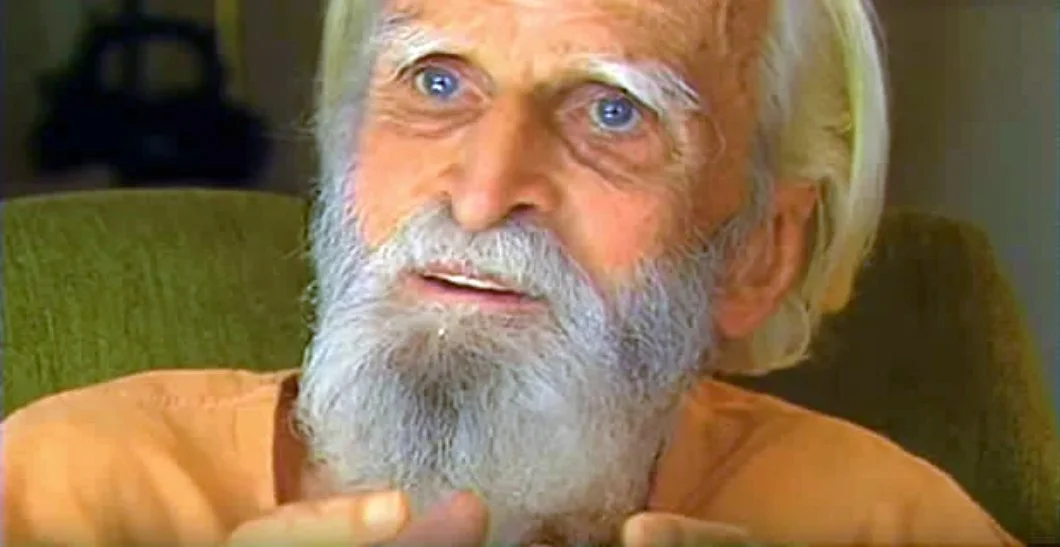Camaldolese monk Bede Griffiths.
By Roland Ashby
It is with an almost overwhelming sense of sadness and despair that we have witnessed such diabolical atrocities being committed in the Middle East, and the unleashing of such terrifying anger, hatred and violence.
What is unfolding is yet more tragic evidence of humanity’s age-old problem – the conflict and violence which results when the “reptile mind”, as theologian Matthew Fox calls it, is allowed to hold sway. This is the dualistic mind of “I’m right, you’re wrong”; “I win, you lose”. Fear and hate rule the day.
Jesus, too, became its victim. But at the start of his ministry he called us to a radical change of heart, which is often translated as “repent”.
But the original Greek word is metanoia, which literally, as Andrew Mayes tells us, means “beyond” or “large” (meta) , and “mind” (noia). “Jesus is calling us to ‘go beyond the mind’ or ‘go into the big mind’.
“He is inviting us to a fresh way of seeing things, a new consciousness. He is demanding that we let go of our former dualistic paradigms and make the transition into a new vision of things that is summed up in the metaphor of the ‘kingdom of God’.”[1]
This new consciousness and new vision is to be found in what the mystics call the “cave of the heart”, or what theologian Maggie Ross calls “Deep Mind”, where love, compassion, healing, forgiveness and unity can be found.
One of the spiritual giants of our time, Camaldolese monk Bede Griffiths, died 30 years ago in India, where he had set up an ashram dedicated to integrating Western and Eastern spirituality.
He argued that if humanity was to find healing, redemption and reconciliation it had to go beyond the rational mind, which is inherently dualistic, and the only way to do this, he believed, was through meditation:
“[The rational mind] sees everything in terms of opposites, mind and matter, subject and object, truth and error, right and wrong. But always beyond the dualism of the mind is the unity of the spirit.
“Meditation takes us beyond the dualities to the unified spirit. Christ came to set us free from this dualism.”[2]
This is something he says which is “marvellously expressed” in St John’s Gospel: “May they all be one: as you, Father, are in me, and I in you, so also may they be in us.” (John 17:21)[3]
He adds: “We are being called to recover unity beyond duality as our birthright, and it is this alone which can answer the deepest needs of the world today ... Every religion goes beyond dualism through its mystical tradition.
“This is our calling and our hope. Meditation is the only way to go beyond dualism.”[4]
When we go beyond the mind, he says, we “discover the unifying principle behind everything” and that the ultimate Reality is not an impersonal Absolute, but a communion of love.[5]
